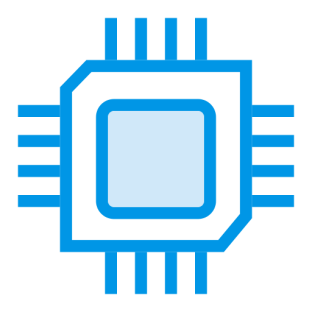Online computer science degrees are gaining popularity among tech hopefuls. They offer a smart choice as college costs rise 8% yearly. These programs provide flexible and affordable learning options.
Virtual computer science education opens doors to high-demand tech jobs. Computer scientists earn a median salary of $136,620 annually. The field is growing faster than average, making it a solid career investment.
Online CS degrees break free from traditional classroom limits. CSU Global, for example, offers eight-week courses with monthly starts. This setup allows students to learn without strict schedules.
Many employers now value online CS degrees from accredited schools. The best programs balance tech training with real-world skills. This approach prepares graduates for the ever-changing tech industry.
Before choosing, it’s vital to weigh the pros and cons of online CS education. This guide will help you explore virtual computer science degrees. You’ll gain insights to make the best choice for your future.
Understanding Online Computer Science Education in 2024
Online computer science programs have revolutionized tech education. They offer flexibility and accessibility to students worldwide. Virtual curricula now provide comprehensive training in critical technological skills.
Online CS programs cater to modern technology professionals’ needs. They offer innovative educational pathways for diverse student backgrounds. These programs deliver comprehensive training in essential tech skills.
What Defines an Online Computer Science Degree?
An online computer science degree is a fully digital academic program. It delivers tech education through virtual platforms. These programs typically include:
- Comprehensive programming courses
- Software engineering fundamentals
- Cybersecurity training
- Database management
- Networking technologies
Accreditation and Program Quality
Accredited online CS degrees ensure high-quality education recognized by employers. Accreditation validates the program’s curriculum and faculty expertise. It also confirms alignment with industry standards.
| Accreditation Aspect | Key Considerations |
|---|---|
| Institutional Accreditation | Validates overall educational quality |
| Programmatic Accreditation | Specific to computer science curriculum |
| Industry Recognition | Ensures employer confidence |
Typical Curriculum Structure
Virtual computer science curricula usually span 120-128 credits. They cover foundational and advanced technological concepts. Students learn both theoretical knowledge and practical skills.
- Core Programming Courses
- Advanced Algorithm Design
- Software Engineering Principles
- Specialization Electives
Modern online CS programs prepare students for a rapidly evolving technological landscape, emphasizing adaptability and continuous learning.
Are Online Computer Science Degrees Worth It: Investment Analysis

Online CS degrees offer significant financial benefits compared to traditional paths. They require a thorough cost-benefit analysis beyond simple tuition comparisons. Students can expect substantial advantages when considering this educational route.
The computer science education landscape reveals compelling insights:
- Median annual salary for computer and IT jobs: $104,420
- Projected annual new job openings: 356,700
- Typical online degree tuition: Significantly lower than traditional campus programs
Career potential makes the value of online CS degrees clear. Specific tech roles show impressive financial opportunities:
- Software developers: $130,160 median annual salary
- Information security analysts: $120,360 median annual salary
- Computer systems analysts: $103,800 median annual salary
Employers now recognize online degrees more than ever. In fact, 87% report hiring candidates with online credentials. The cost-benefit analysis strongly favors online computer science programs.
These programs offer several advantages:
- Lower overall educational expenses
- Flexible learning schedules
- Comparable job market opportunities
- Potential for faster career advancement
Students invest less while gaining valuable technical skills. These skills directly translate into lucrative career opportunities in the technology sector.
Benefits and Drawbacks of Virtual CS Learning
Online computer science degrees offer unique opportunities and challenges. Virtual learning has changed higher education. It provides new ways for tech professionals to gain crucial skills.
Students must weigh the pros and cons of online CS degrees. They should consider their learning style and career goals carefully.
Advantages of Online Learning
- Unprecedented flexibility for working professionals
- Access to top-tier computer science programs regardless of geographic location
- Lower overall educational expenses compared to traditional campus programs
- Self-paced learning environment
- Ability to balance work, education, and personal commitments
Potential Challenges to Consider
- Limited direct interaction with professors and peers
- Requires strong self-motivation and discipline
- Potential technology barriers and connectivity issues
- Less hands-on collaborative project experience
- Potential difficulty in networking
Student Success Factors
Thriving in virtual learning requires specific strategies. Here are key success factors:
- Developing robust time management skills
- Creating a dedicated study environment
- Actively participating in online discussion forums
- Utilizing university support resources
- Maintaining consistent communication with instructors
Virtual learning offers more than just convenience. Students gain essential digital literacy skills for today’s tech-driven workforce. With planning and engagement, online education challenges can be overcome.
Career Prospects and Salary Potential
The computer science job market is booming for graduates. The U.S. Bureau of Labor Statistics predicts 13% growth through 2026. This rate surpasses average occupation growth significantly.
Online CS degrees open doors to diverse, high-paying careers. These include software development, cybersecurity analysis, and data science. Network architecture and IT management are also popular options.
Computer science professionals earn impressive salaries. The median annual wage in this field is $104,420. Some specialized roles offer even higher pay.
- Software Development
- Cybersecurity Analysis
- Data Science
- Network Architecture
- Information Technology Management
Certain positions command exceptional compensation. Computer and information technology occupations offer lucrative opportunities. Here are some examples:
- Information Research Scientists: $145,080
- Software Developers: $130,160
- Cybersecurity Engineers: $120,360
- Database Administrators: $117,450
Data science is a rapidly growing field. It’s projected to expand by 35% from 2022-2032. Graduates can expect competitive pay and numerous opportunities.
The tech landscape is evolving quickly. This creates abundant prospects for those with computer science skills. Competitive salaries and job growth make it an attractive career choice.
Conclusion
Virtual computer science education is evolving rapidly. It offers new chances for future tech professionals. A 2024 Bankrate study shows strong job prospects in STEM fields.
Picking virtual CS education needs careful thought about career goals. The future of online CS degrees looks bright. Employers now value digital learning more.
Game dev, web dev, and systems analysis need skilled pros. These fields require people who can adapt to tech changes fast.
Online CS degrees offer great career potential. Median yearly pay ranges from $103,800 to $130,160 for various roles. Job growth in tech roles suggests long-term stability.
Success in digital learning needs commitment and critical thinking. You must also love technology. Accredited online programs offer a flexible path to computer science.
These programs help students build careers in a growing tech world. They open doors to innovation and opportunity.




